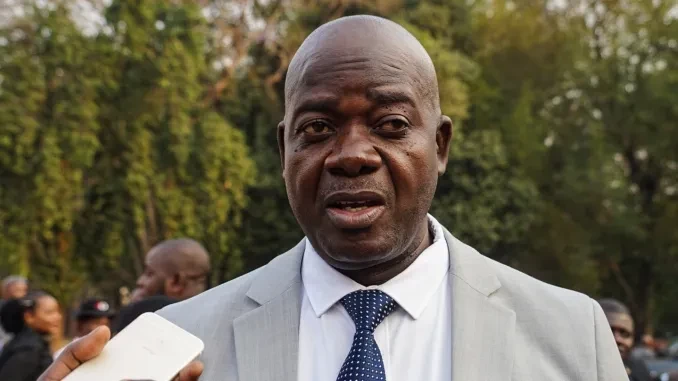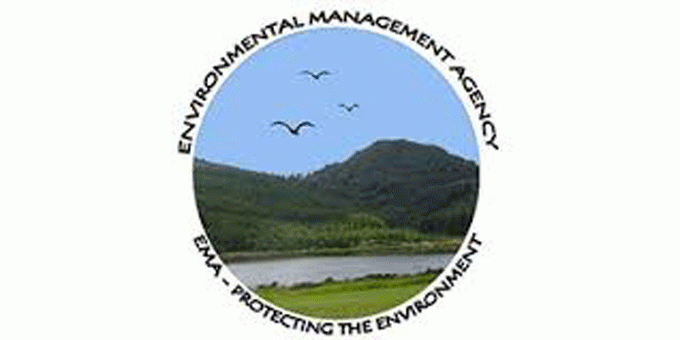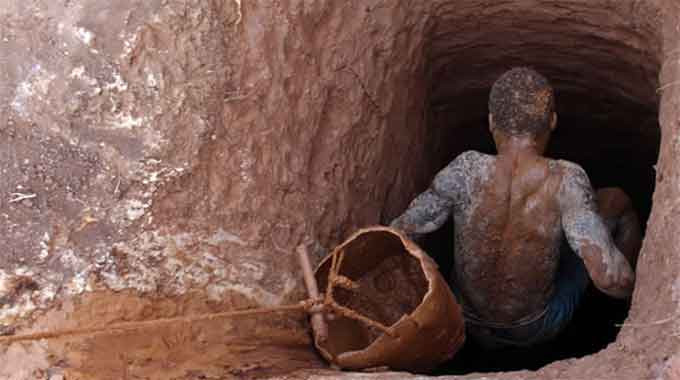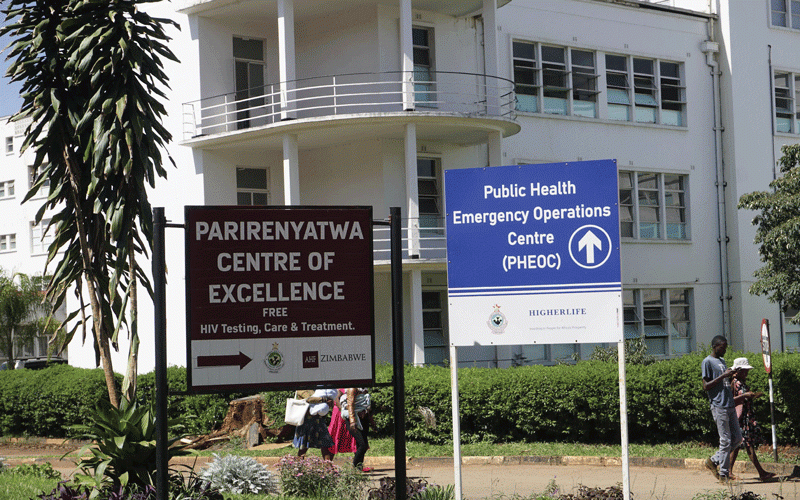
Angela Madzivaidze vividly recalls the painful ordeal surrounding her father’s illness and death just two months ago.
What began as a desperate attempt to save his life quickly spiralled into emotional anguish and financial strain.
Despite their efforts, Madzivaidze said her family’s sacrifices were in vain.
She blamed corruption at the local hospital where her father sought treatment, which she said delayed critical care and drained the little they had.
“There were no testing services [for prostate cancer] at Parirenyatwa Hospital,” she Madzivaidze said.
“When we got to the hospital on a Sunday, we were told to get him tested for prostate cancer. The doctor instructed us to go to a specific testing facility for the tests, and they came back negative.”
Parliamentary investigations and health sector reviews have revealed that diagnosis at Parirenyatwa Group of Hospitals is frequently compromised by erratic laboratory reagent supplies, leading to disrupted routine testing and significant delays.
Additionally, the hospital continues to struggle with chronic under-resourcing, including non-functional radiotherapy and imaging equipment, a shortage of specialists such as pathologists and radiologists, and outdated diagnostic infrastructure deepening the challenges of effective patient care.
- The strange tale of China's loans to Zimbabwe
- ‘Govt pampering looters with tax breaks’
- COVID-19 survivors recount their ordeal
- 5 more UZ students arrested
Keep Reading
Madzivaidze explained that after the first test, they were told her father needed another one to check his blood status.
“We were then specifically instructed to go to a certain vehicle parked within the hospital fence for the blood tests to determine his blood group, blood count and other things,” she said.
“This test cost us US$100, and we did not understand why the doctor was referring us to a vehicle parked in the hospital premises for such critical tests,.”.
Madzivaidze said the initial test had already cost US$80, but they later learned that similar tests were available elsewhere for as low as US$30.
“During all this time, my father was admitted, not getting treatment, just painkillers, without any proper diagnosis,” she added.
“We were pumping out money for tests that the doctor wanted done specifically by certain providers,” she adds.
Eventually, Madzivaidze requested that her father be discharged and they sought private care, where he later passed away.
Across Zimbabwe’s public hospitals, patients in need of essential services such as blood tests, X-rays, and scans are often referred by healthcare workers to private facilities.
These referrals are not always based on medical necessity. Investigations reveal that in many cases, healthcare workers receive commissions from private providers, creating a shadow referral system that exploits desperate patients and adds financial burdens on families already struggling to afford care.
In Zimbabwe, medical professionals are barred from profiting from patient referrals. Section 14.1 of the Code of Professional Conduct (2009) explicitly prohibits doctors from offering or accepting any financial inducement for referring patients, stressing that referrals must be guided solely by the patient’s best interests.
Any payment, commission, or reward linked to referrals is deemed professional misconduct and subject to disciplinary action.
This journalist went undercover and observed a representative of private laboratory OmniPath, identified as Judith, delivering test results at Parirenyatwa Hospital.
On arrival, Judith greeted the nurse stationed at the emergency services entrance, a sign of familiarity, and pointed out where she would park for the rest of the day.
When approached, Judith introduced herself as an employee of OmniPath Medical Laboratories and said she could assist with “any form of tests,” adding that she would be stationed at the hospital the whole day.
She operated in plain sight, with patients being referred to her by doctors, while nurses directed patients and their relatives to her unbranded vehicle.
OmniPath’s representative, Nyaradzo, who declined to provide her surname, confirmed that Judith was indeed their employee, but insisted she was acting outside company policy.
“I will need to check this out. She is not supposed to be stationed there; this is not as per our mandate, and I need to find out why she was stationed there,” she said.
“If there are services that are not being offered at Parirenyatwa, they do come through to us at our main offices in Belvedere.”
Zimbabwe’s public healthcare system is in a state of crisis. According to the Community Working Group on Health, healthcare coverage has declined by up to 40% due to chronic underfunding and an exodus of health professionals.
In 2022, hospitals spent 73,1% of their budgets on salaries, leaving little for medication, supplies, or functional equipment.
By late 2022, only 1 724 doctors and 17 245 nurses were employed in public institutions, figures significantly below the World Health Organisation’s recommended minimum of 4.45 skilled health workers (doctors, nurses, and midwives) per 1,000 people for adequate population coverage.
A 2024 report by the Zimbabwe Coalition on Debt and Development (Zimcodd) revealed the depth of the crisis, with 64% of respondents reporting a critical shortage of healthcare personnel in their communities.
The same report highlighted continuous weaknesses in healthcare delivery, with 61% of people rating the availability and condition of medical equipment in public hospitals as poor, and 58% expressing concern over unreliable access to essential medicines.
These shortfalls have created opportunities for corruption.
Patience, a nurse at Harare Hospital, one of Zimbabwe’s largest referral hospitals, who refused to have her full name disclosed for fear of losing her job, said the practice of referral commission is widely known.
“We know it’s happening,” she said. “When the hospital is not running certain blood tests and many aren’t done here, the doctors refer patients to either their labs or to private labs where they get a fee as commission.”
“How they do it is by writing their phone numbers on the back of the blood request form.
When the lab sees this, they know what it means. The commission is usually $5 to $10, depending on the type of test,” Patience added.
For patients, this adds hidden costs and unnecessary procedures.
“Sometimes they end up writing blood tests that are not necessary just to get that incentive, and this disadvantages the patient,” she says.
These practices are made possible by frequent service outages in public hospitals.
“The X-ray or scan machine can just stop working at any time. That creates a loophole. It leaves patients with no choice but to seek care from private providers that the doctors refer them to,” she explained.
Madzivaidze said her experience reflected this pattern.
“We were even advised at the hospital to go specifically to where the doctor referred us,” she said. “If we didn’t, the doctor could say the test is not good enough.”
Memory, another nurse at Parirenyatwa Hospital, confirmed that the practice existed, but added that not all referrals were corrupt.
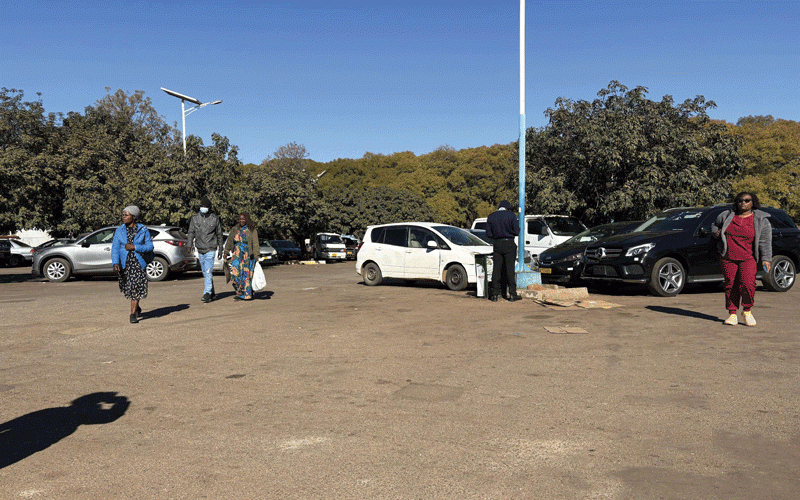
“At times it may be a matter of the doctor referring a client to a lab where he knows patients will get thorough tests,” she said.
Parirenyatwa Hospital public relations officials did not respond to a request to comment on this issue.


